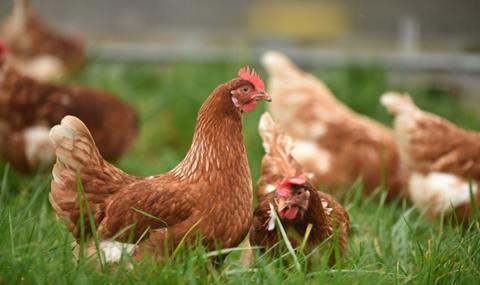Chief veterinary officer for Wales, Richard Irvine, has said housing measures for poultry and captive birds are to be lifted on 18th April. However, bird owners should continue to practice rigorous hygiene and biosecurity.

While avian influenza risk levels to poultry and captive birds have reduced, the risk of outbreaks remains.
Enhanced biosecurity requirements which were brought in as part of the Avian Influenza Prevention Zone (AIPZ) in December will stay in place. This includes a mandatory biosecurity self-assessment checklist to be undertaken by all poultry and captive bird keepers.
The Welsh Government said it has worked closely with partners across Great Britain, the industry and keepers to ensure proportionate biosecurity measures have been in place to help keep flocks safe. The housing measures have been an important tool in protecting birds from avian influenza, which continues to circulate in wild birds.
Bird keepers are being encouraged to use the next week to prepare for release of their birds – particularly their outdoor areas, including cleaning and disinfecting equipment.
Richard Irvine said: "I know this will be welcome news for bird keepers, who have housed their birds since December, and I want to thank them for all their efforts in keeping their flocks safe.
“What is essential now is that keepers, whether it be for a few birds or thousands, keep practicing rigorous hygiene and biosecurity measures to prevent outbreaks of avian influenza.
“This includes continuing to complete the mandatory biosecurity self-assessment checklist to help keepers identify what is needed to protect their birds.
“It’s also vital everyone remains vigilant for any signs of disease in their birds and wild birds, reports it and seeks advice immediately if they have any concerns.”
The Avian Influenza Prevention Zone (AIPZ), which covers all of Wales, remains in place. As before, this requires keepers of poultry and other captive birds to take appropriate and practicable steps to prevent avian influenza, including:
- Keeping kept birds off land that is known to be, or at high risk of being, frequented by wild waterfowl, or contaminated by their droppings or feathers.
- Ensure the areas where birds are kept are unattractive to wild birds, especially waterfowl, for example, by netting ponds and surrounding areas and by removing wild bird food sources;
- Feed and water birds in enclosed areas to discourage wild birds;
- Minimise movement of people in and out of bird enclosures;
- Clean and disinfect footwear, use foot dips before entering poultry enclosures, and keep areas where birds live clean and tidy;
- Ensure all bedding, equipment, clothing and anything else that enters the areas where birds are kept are free of direct or indirect contamination with HPAI, which is mainly spread through bird droppings.
- Keep domestic ducks and geese separate from other poultry.
The Welsh Government said all of these steps are important in protecting birds. Alongside these, completing the mandatory biosecurity self-assessment can further help keepers identify the measures needed to be taken to ensure the safety of their flock.
This story was originally published on a previous version of the Meat Management website and so there may be some missing images and formatting issues.















